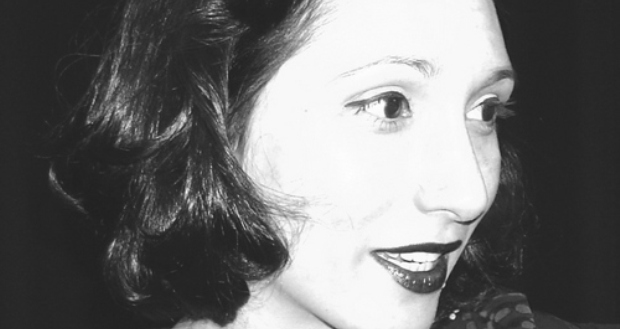Two women walk into a comedy club…
Helen Keeler on her experiences of sexism in comedy.

The year was 1989. I was 14 years old and had already written feminism off. What are they on about? I thought. Equality has been achieved! In that the same year, I decided electric blue mascara and sending Matt Goss a Valentine’s card signed, ‘From the future Mrs. Goss,’ were both brilliant ideas.
The year is now 2015. I have been doing stand-up comedy for five years and I love it. I’ve met lots of great people; friendly people, clever people, socially aware people. People who explore issues, politics and injustice through comedy. And people who are just plain funny. But I’ve also come up against sexism like never before in my life.
Ten days ago, I made the decision to name and shame a promoter who had dropped me from a bill for being female – and told me so. It was in response to a woman booking tickets for a large group.
She asked him who was on and he told her. When he got to my name she said, ‘Oh, we don’t like female comedians.’ He replied that I was ‘extremely funny’, but, without ever having seen my act before, she said that female comics ‘all just talk about woman stuff’. Fearing he might lose the booking, he told her he would replace me with a man.
When he told me this, promising me other gigs, I told him that I wasn’t sure I was okay with this and that him I’d speak to him the following day. When I spoke to him again, I said that I’d thought about it and it wasn’t acceptable. I said that he should keep me on the bill because otherwise it was impossible to challenge the perception that female comedians aren’t funny.
He told me he’d already replaced me and offered me a spot in May instead. I suggested he offer my replacement the spot in May and give me back the one I’d been booked for. He refused.
I posted this information on Twitter and on a UK comedy forum and it caused something of a furore. In fact, it garnered much more attention than I imagined it would. Over a thousand comments and more than 40 retweets later, I’m now convinced this is a significant issue.
Most of the response has been supportive. Some other female acts have said that they too have had similar issues. A far more widespread problem is promoters only being willing to put one woman on a bill.
One promoter booking a female act on an otherwise all-male bill told her, ‘You can be the tits for the night.’ Another promoter said he wouldn’t book two female acts on a bill, justifying this by saying he also wouldn’t book two black acts, two gay acts or two musical acts on the same bill, clearly believing gender, skin colour, sexuality and funny songs to all be styles of comedy. Well, I say gender, but it only seems to apply to one gender.
This all comes down to the same untruth: that female comedians are all the same, so if you don’t find one of them funny, you don’t find any of them funny. Jen Brister, Isy Suttie and Susie McCabe are three of my favourite professional comedians and they are totally dissimilar in appearance, style of delivery and content of their material. I’ve never heard any of them talk about ‘woman stuff’ – and neither, incidentally, do I.
Another problem for women in comedy is sexual harassment. I wouldn’t say this is rife, but it is an issue. I once asked a guy I know who does stand-up if it was worth gigging for a certain promoter. He replied, ‘Only do it if you don’t mind him touching you.’ Another promoter sent me very flirtatious texts, the content of which clearly crossed a line, even though we were both in relationships with other people. When I stopped replying, he stopped booking me.
Stand-up comedy is a very male domain. That’s okay. There are lots of areas that attract one gender more than the other. It’s also worth saying that the majority of male acts and promoters are decent and respectful men, many of whom I now consider to be my friends. But there is enough sexism to create a struggle at times.
So I was wrong when I was 14, the fight is far from over and electric blue mascara is a terrible choice. The Valentine’s card, though, I stand by.



































